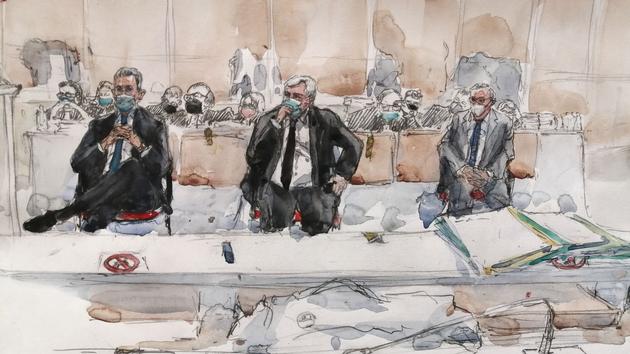Doctor of philosophy and graduate of a DESS in human resources, Julia de Funès has published "Socrates in the land of processes" (Flammarion, 2017) and "Development (im) personnel, the success of an imposture" (Éditions de l'' Observatory, 2019).
For those sworn to good thinking, who disapprove of real hunting but are crazy about symbolic prey, the trophies are multiplying like hot cakes.
The great legends fall one by one.
Sometimes writers, sometimes philosophers, composers, directors, painters, poets, singers, ministers, presidents of the republic, everyone goes there, especially exceptional men.
To keeping alive what is beautiful, we prefer killing by what is ugly.
The pleasure is no longer in admiration, in inspiration, but in the game of massacre.
We rejoice in flushing out, defiling, lynching.
The punitive expedition is carried out in three stages.
The first is that of locating the prey.
This is most often found within an elite.
Privileged hunting ground for egalitarian predators immediately attracted by the one who is differentiated by any superiority.
The privileges of birth having been abolished for a long time, it is those of merit that it is now good to attack.
Our time makes retroactive principles of its values.
The facts no longer have a context, history is nothing more than a contingency.
Nothing, not even personal labor justifies any difference in appreciation for the little ones who feel grown up to degrade the big ones.
Once spotted, the game finds itself caught in the narrow mesh of our new values.
"
We become moral as soon as we are unhappy
" said Proust.
Our period is so unhappy that it does not content itself with moralizing the present.
It turns its values into retroactive principles to the point that customs no longer have dates, facts no longer have a context, history is no more than a contingency.
After the elite capture and moral development, comes the third phase, that of justice.
One could hope that the court of good-will be supplanted by the professionalism and rigor of a court of law.
But this week we have seen a whole different reality of justice.
Read also:
Julia de Funès: The fight against the Covid unleashed the French legalomaniac drive
In the trial of our former President of the Republic, Nicolas Sarkozy, justice seems in this case to have replaced evidence with suspicion, evidence with clues.
The index, it should be remembered, is a plausible sign.
Unlike the true which is real, the probable is possible.
Since the index only refers to the possible, we cannot say anything about it.
Neither that it is true since it is only probable, nor that it is false since, as the maxim says, "
the absence of proof is not the proof of the absence
".
Justice resembles Bloch when it takes for true what is only probable, for real what is only possible by confusing cause and concomitance.
Also, index justice is hell, a prison before its time, in the sense that never being able to deny the possible, never being able to prove that what does not exist (the possible) does not exist, no accused cannot get out.
The one who constantly confuses clue and proof, plausible and true, possible and real in
The Search for Lost Time
is called Bloch.
He embodies the archetype of the one who gives primacy to the possible over the real, and who thereby lacks the reality of beings and the true nature of events.
He is the one who, by his rational ingenuity and the logical links that he weaves between events, is constantly mistaken about reality.
To read also:
Sarkozy condemned: "a lowering of the level of requirement as regards evidence"
When Bloch discovers that the narrator lives with Albertine, he immediately deduces that this is the reason why he no longer leaves his home.
However, the two facts have no relation to each other.
The narrator no longer leaves his home for a completely different reason.
"
Those who learn about the life of another some exact detail, immediately draw consequences which are not and see in the newly discovered fact the explanation of things which precisely have no relation to it
".
This means that Bloch, through an excess of logical rantings, never ceases to see causes, where there are in fact only concomitances.
If medicine sometimes resembles Knock, justice resembles Bloch when it takes for true what is only probable, for real what is only possible by confusing cause and concomitance.
With Knock it is health which is suppressed, with Bloch it is reality.
Both symbolize usurpations of power, twists of reality, which deserve all our caution.

